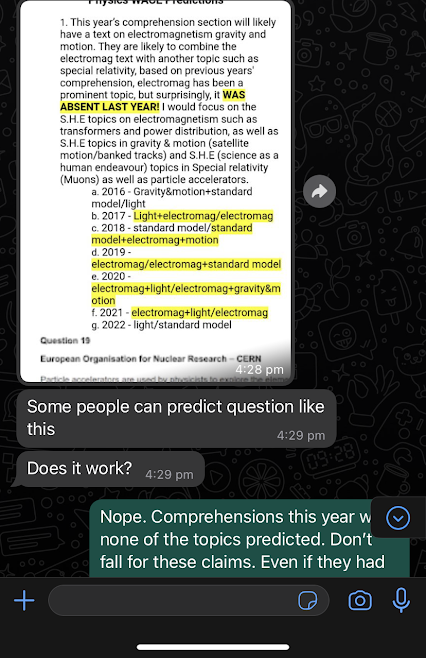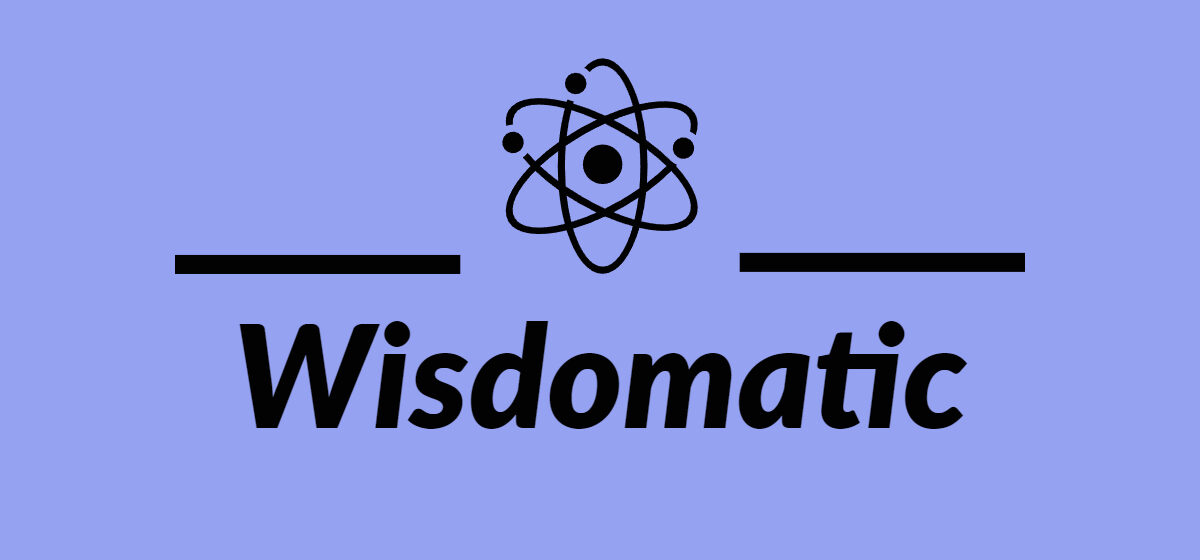In the high-stakes world of education, students often find themselves grasping at straws, desperately trying to get the slightest insights into questions that will appear on their exams. The allure of exam prediction is undeniable – the promise of a shortcut to success, a way to outsmart the system and secure a good grade with minimal effort. Having written a half dozen exams for commercial papers, I can assure you that there is no algorithm that exam writers follow and no way to predict exam questions. Sorry!
A client asked me for insights into which questions would be in the next exam. I gave my standard response, “Impossible to know, so let’s ensure a good foundation of knowledge across all topics”. My clients stick with me because I develop a good rapport with students, I make the sessions enjoyable, and students feel more confident after we work through challenging questions. Predicting exam questions is a cheap gimmick, and one that does not pay off overall. On this occasion I had the benefit of my client passing on one of these “predictions” from a tutoring business on the morning of this year’s (2023) Physics ATAR exam (pure happenstance). The predictions were likely handed out during a holiday revision program. I had the unique opportunity to compare the predictions to the actual exam questions (yes, I could access the ATAR exam one hour after students sat it, a small benefit of being a practising teacher).

Despite the predictions covering over 50% of the course (hedging bets, am I right?) the predictions were still 100% off.
Predictions for Section 3 of Exam:
- Electromagnetism
- Gravity and motion
- Special Relativity
Actual Section 3 Topics:
- Standard Model (Conservation Laws in Bubble Chambers)
- Wave-particle duality and the quantum theory (Light Polarisers)
“Light” appeared in Section 3 in 2020, 2021 and 2022. Did that stop it from being in 2023? No. Is “light” guaranteed to be a topic in 2024? No. The “light” questions in past exams covered cyclotrons, LEDs, X-rays, and, this year, polarisers. Advising students to study “light” is vague and doesn’t add any useful insight. Advising students to study these particular applications is a waste as it’s just as likely the next “light” question in Section 3 could be on synchrotron radiation, faraday cages, spectroscopy or microwave shielding – topics not explicitly stated in the syllabus but as novel applications of the theoretical concepts covered in the “light” section of the course.
So, what’s my take-away? If any student of this tuition business followed the advice and devoted an unfair amount of time to specific topics over others, the student would have been worse off in the exam than another who just applied good study habits and revised the core course content. That hardly sounds like good advice to give to paying customers. To any tutors out there, don’t try to play the meta – even if you have honest intentions, focus on giving students useful study skills, not gimmicks.

Ultimately, if the hopes of doing better on the next exam are hinged on gambling that some topics will (or won’t) be in the exam, that is a very poor approach indeed. Be very wary of anyone who tries to sell you on the idea they have some insight into which questions will be in the exams – they are ignorant of how exams are produced at best and purposely deceiving clients to make some cash at worst.
Instead of succumbing to the allure of exam prediction, students should embrace the unpredictability of exam questions by focussing on critical problem solving. That’s hard to “teach” to a student but it comes from good approaches to study. Don’t rely on taking a photo of the teacher’s board or requesting a copy of the power point because you couldn’t be bothered to make notes yourself. Try your hardest to work out an answer to a practice question before peeking at the answers – even if this means you spend more time going back over notes and examples to get some clues. Being served up the answer on a silver platter skips the critical thinking stage so vital to being able to tackle any question that appears in the exam.
In conclusion, the foolishness of trying to predict exam questions lies in its inherent contradiction to the principles of true education. Learning is not a static, predictable endeavour; it is dynamic and when done correctly, empowers individuals to navigate the complexities of the topic. Instead of seeking shortcuts, students should invest their time and energy in understanding the subject matter deeply, honing their critical thinking skills, and cultivating a genuine passion for learning. By doing so, they will not only excel in exams but also acquire the invaluable tools necessary for success in the real world.

